3 Effective methods to treat organic waste at home

Currently, organic waste treatment is always the top concern of most people when the urbanization process is happening rapidly. The amount of organic waste being discharged into the environment is increasing, accounting for 50-70% of the total amount of household waste, but not everyone knows how to properly dispose of waste to be good for the environment. So what will be an effective method of organic waste treatment without affecting the environment and human health?
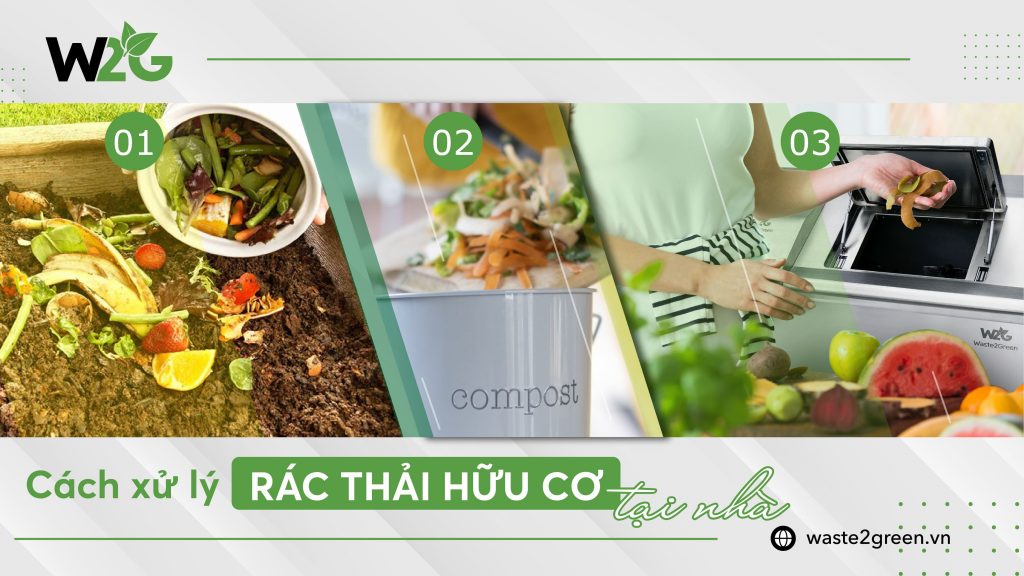
Method 1: Dispose of organic waste by burying
Dispose of organic waste by burying is one of the traditional methods that have been widely applied since ancient times until now. With this treatment method, the implementation is quite simple just by gathering organic waste in an open field, then burying it under the soil layer. In a certain period of time, organic waste will be decomposed naturally by bacteria, forming products such as organic acids, nitrogen compounds and greenhouse gasses (CO2, CH4, etc.).
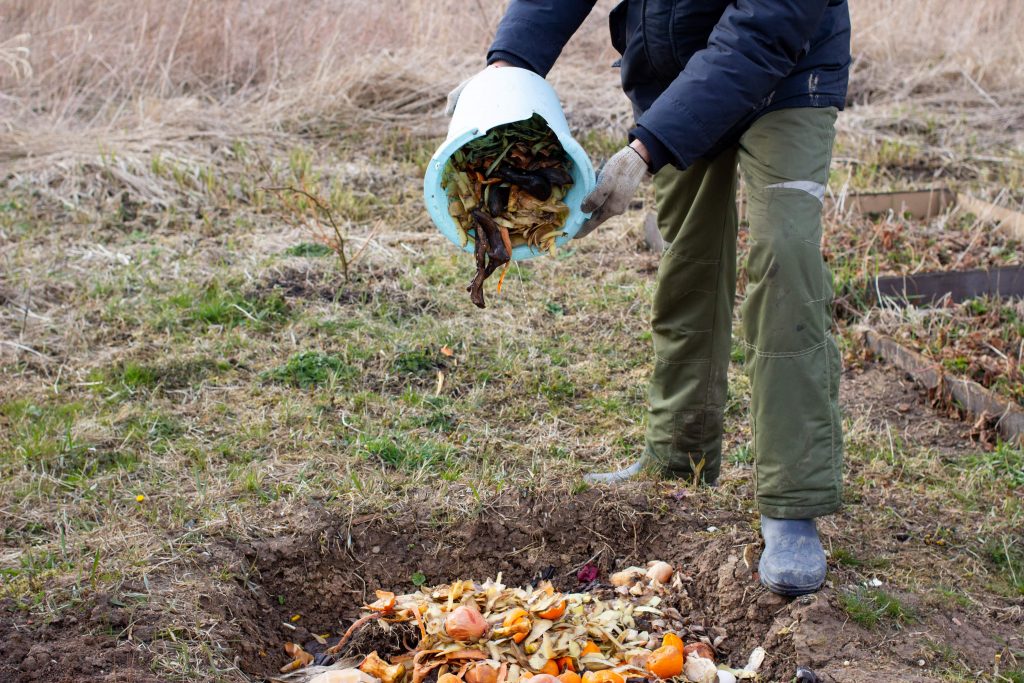
However, choosing the option of burying organic waste does not bring optimal efficiency in handling leftovers because it leads to many consequences for the environment. When leftovers are buried in landfills, combined with the right temperature and long enough, they will begin to decompose with unpleasant odors as well as emit a large amount of greenhouse gasses such as CO2, CH3, etc., affect the surrounding living environment. Not only that, in the process of decomposing organic waste, the microbial ecology in the neighboring soil will also be affected to some extent. Not to mention if there are nearby natural water sources such as rivers, lakes, ponds, streams, etc., then of course there is a high possibility that a part of clean water will be polluted by leachate when organic waste is decomposed. Moreover, this method of burial takes up unnecessary landfill space that could be used for other purposes.
Method 2: Decompose organic waste with probiotics
Organic waste treatment at home by biological composting is currently being widely applied. This is a simple method of food waste recycling and brings many benefits to the environment in general and in agricultural production in particular.Accordingly, the organic waste will be gathered at one point and then composted into piles or beds. In the composting process, biological products will be needed to help dissolve and easily ferment the organic waste. After a certain period of composting, these wastes will decompose into simple organic substances similar to humus in nature, so they can be used as organic fertilizers for agricultural manufacturing.
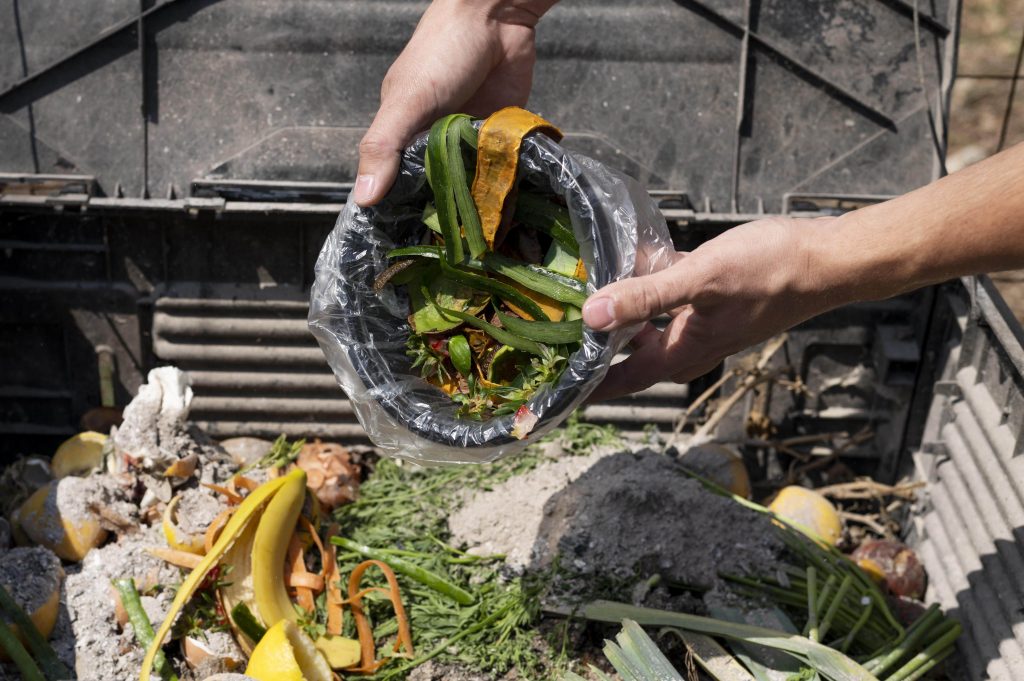
Although organic waste treatment with probiotics is one of the best methods to maintain and enhance the fertility of garden soil along with other benefits, it also has its own disadvantages, such as:
- Various types of odors are produced during the composting process depending on the type of food waste. Odors can be very unpleasant and reduce the overall quality of life for people living in the area.
- Composting often tends to attract different types of animals that can be harmful to human health such as mice, flies, mosquitoes, snakes, etc.
- The process of composting is not a steady and rapid process or can happen overnight, it depends on the technique. Composting can take several weeks to achieve results.
Method 3: Use smart electric organic waste composter
Along with the development of technology, there are now smart products on the market that integrate complicated organic waste treatment processes into a single device, overcoming the disadvantages that the two methods of organic waste treatment in landfill and bio-composting bring.
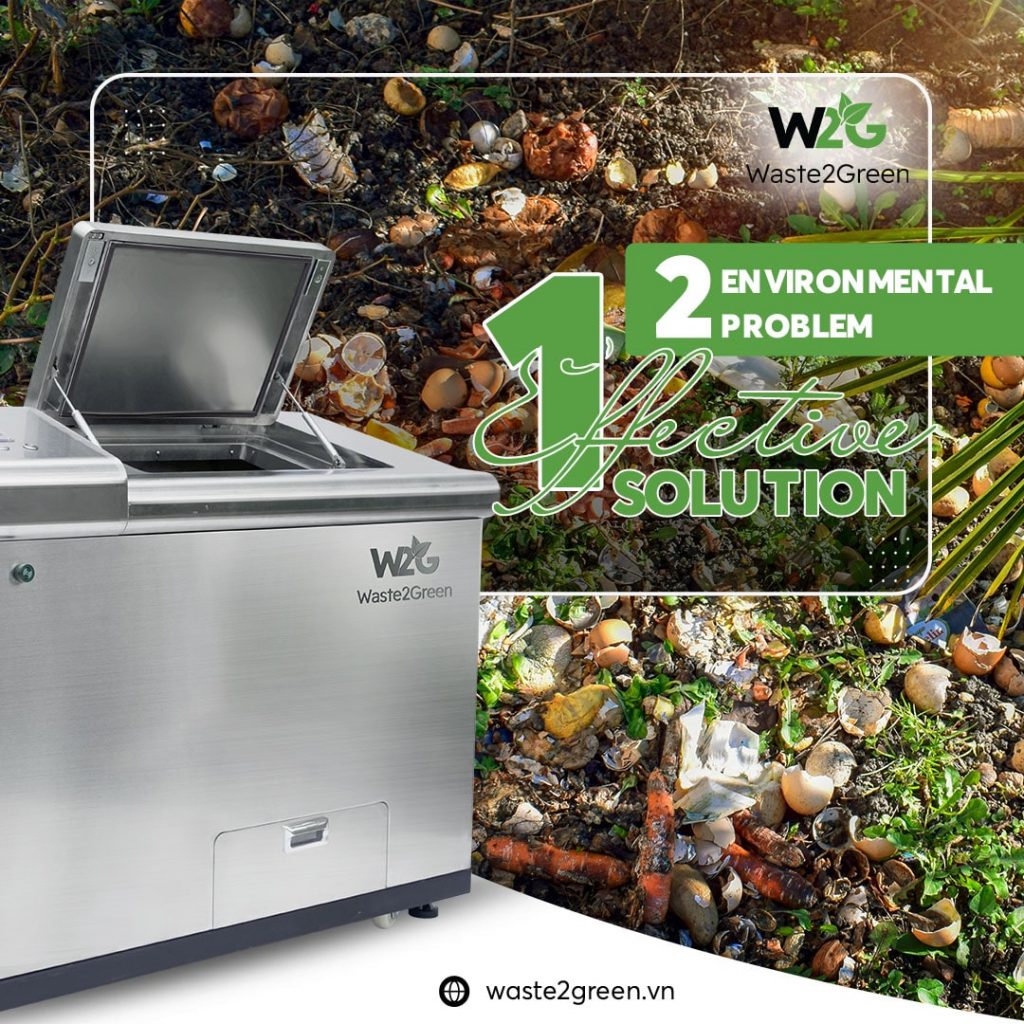
Smart electric organic waste composter helps users easily operate and use finished products with high nutrition to fertilize plants. Besides, not only optimizing performance, shortening composing time to only 24 hours, but also during the composting process, there is no unpleasant smell or noise. It can be seen that the advantages of this method will become one of the smartest choices currently.
In addition to these highlighted advantages, this method also has its own limitations: it can be costly. However, in terms of long term benefits that this method brings, this is an option worth considering. Moreover, currently on the market, organic waste recyclingdevices are still quite new to consumers, the selection of information to make a decision to choose a device that suits your needs is something that needs more attention.
Waste2Green – Smart electric composter for organic waste treatment
Understanding the current situation as well as the negative impacts of organic waste on the environment and human health, iATT Green belongs to iATT Group – formerly Autotech Machinery JSC, a leading enterprise in the field of automation, specializing in designing and manufacturing auxiliary industrial machines has developed Waste2Green – A smart organic waste recycling device.
Waste2Green smart electric composter is not only impressive with its smart function, which converts up to 90% of organic waste volume into nutrient products for plants, but also hi-speed solution within only 24h combining with energy saving technology.
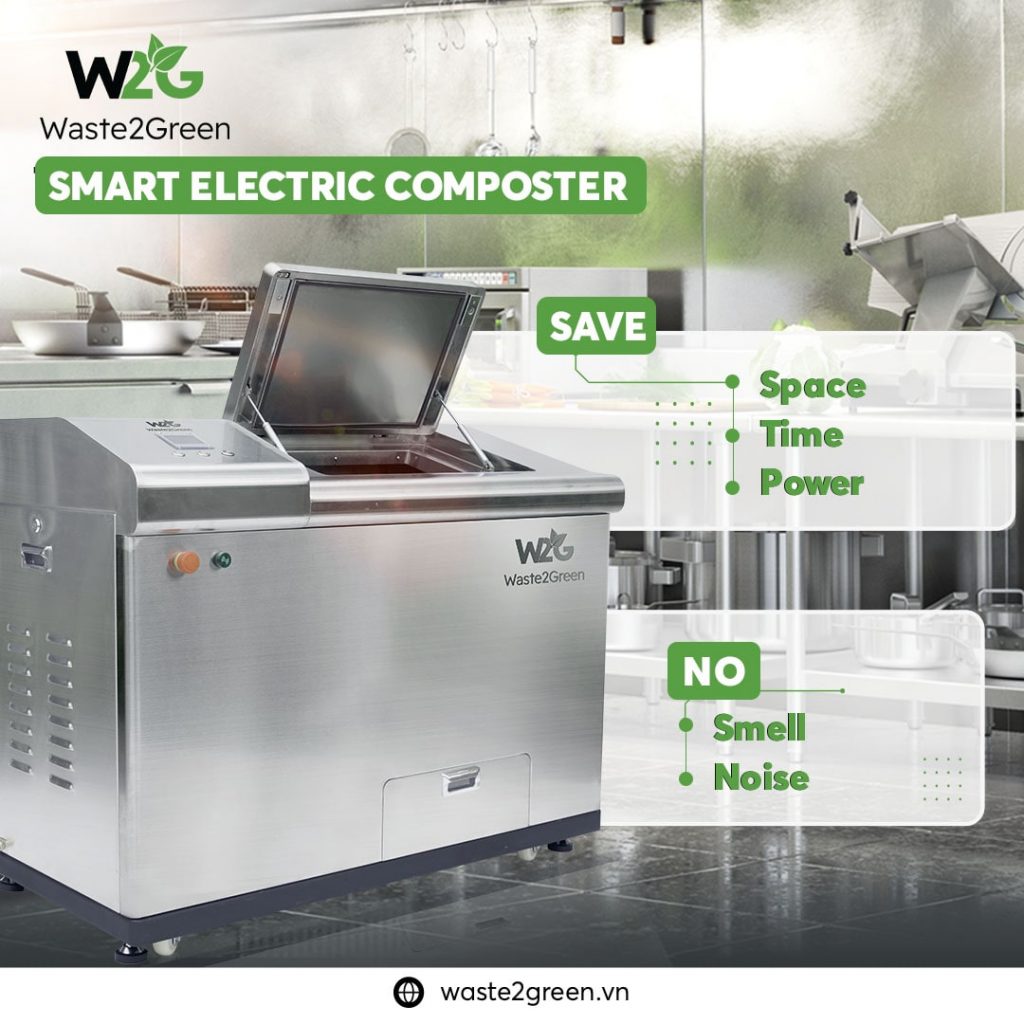
- Space saving: small, compact and space-saving, Waste2Green still ensures a capacity of up to 30L for each recycling operation.
- Time saving: while the manual method takes up to 10 days to complete a composting process to convert a certain amount of organic waste, Waste2Green only takes 24 hours to do it.
- Power saving: with a 24h power consumption parameter of only 17.5kWh, nearly 30% less than similar products, plus the processing time advantage mentioned above, you can be confident that you have chosen the right product that is friendly not only to the environment but also to your business operating costs.
- No noise: according to the noise level classification, the noise index emitted by Waste2Green when operating is 35dB, quiet and light sound level, safe and comfortable to ensure that it does not affect you even in sleep.
- No smell: What everyone is afraid of when it comes to organic waste is that the surrounding space is affected by unpleasant odors. But with Waste2Green, space is not only guaranteed thanks to the odor control feature, but the finished product obtained after the recycling process will also smell like rice bran which is quite pleasant.
Speak to Waste2Green
Contact Waste2Green to know more about our smart electric organic waste composter that suits your needs!
- Headquarters: No. 11-15, Street 17, Industry – Urban – Service Complex VSIP Bac Ninh, Dai Dong Commune, Tien Du District, Bac Ninh Province, Vietnam
- Ho Chi Minh City Branch: 49 Street No. 12, KP5 – Hiep Binh Chanh Ward – Thu Duc City – Ho Chi Minh City
- Hotline: 0903 232 625
- Email: info@auto-tech.vn | info@waste2green.vn
Find out more our products at https://waste2green.vn/
Connect with us:
- Linkedin Waste2Green: https://www.linkedin.com/company/waste2green/
- Facebook Waste2Green: https://www.facebook.com/Waste2Green
- Linkedin Autotech: https://www.linkedin.com/company/autotechvn/
